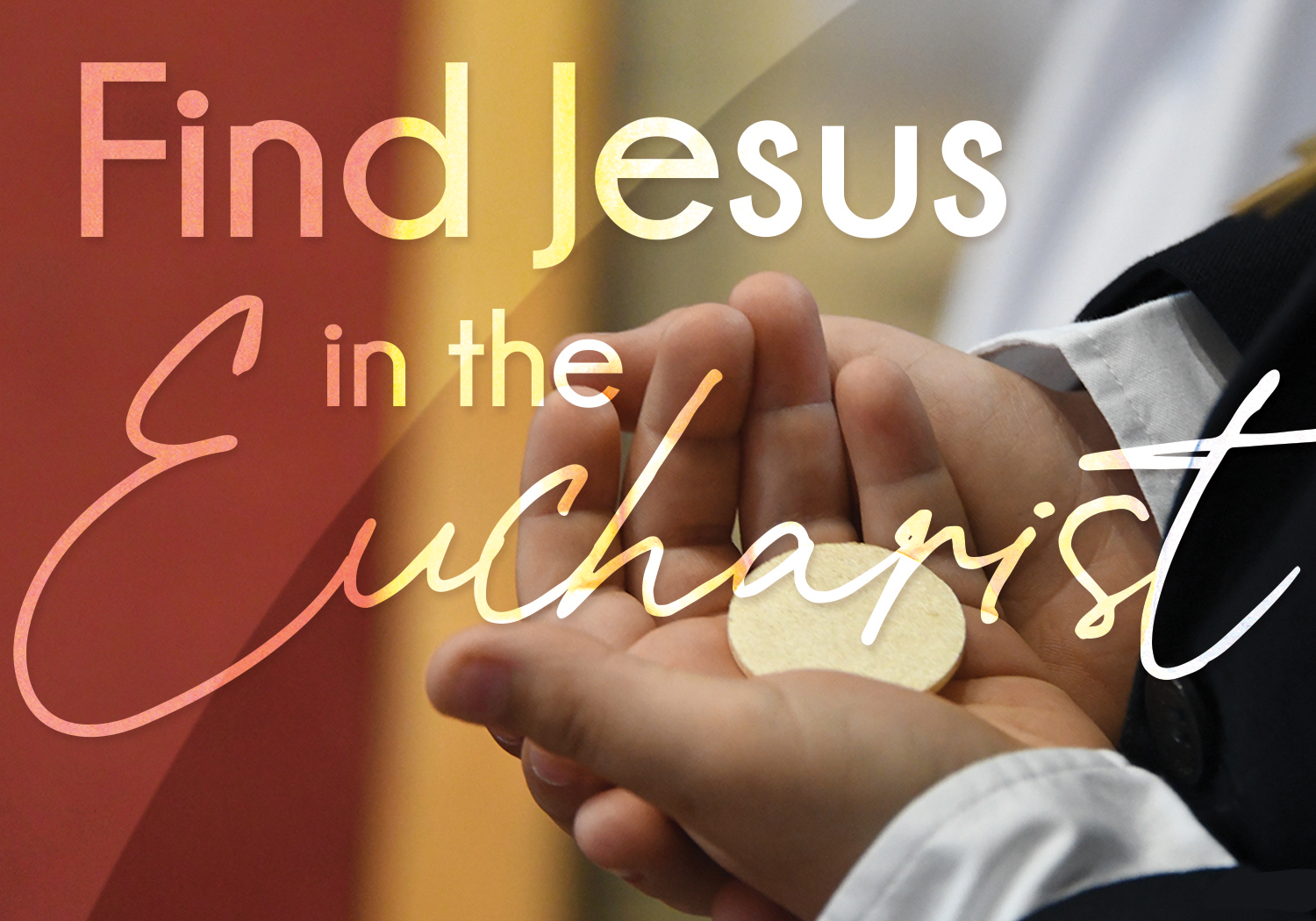Eucharist (Communion)

The Eucharist, also referred to as Holy Communion, is the central part of the Mass for Catholics, the Source and Summit of our faith. It is at this time that the bread and wine become the Body and Blood of Christ, the True Presence.
As Catholics, we believe that the Eucharist is not merely a sign or symbol, but that Jesus is truly present.
See the videos below.
Frequently Asked Questions
Do you have low-gluten hosts?
LOW-GLUTEN HOSTS are available upon request. At least 10 minutes before Mass begins, go to the vestibule at the main entrance or the sacristy and ask for the Sacristan. They will explain where to receive your Host.
Can non-Catholics receive Communion?
Most Christian churches do not believe that the body and blood of Christ become truly present during the liturgy. The Catholic Church has always believed and taught this.
To receive the Eucharist at a Catholic Church is to wholeheartedly say AMEN (meaning, Yes! So be it! I believe!) to the Real Presence of Jesus in the Eucharist and to the teachings of the Church, with full integrity of one's belief and actions.
We are sorrowful at this division of belief within the Body of Christ, because Jesus said "that they may all be one" (John 17:21).
Because of this division, those who are not already Catholic should not receive communion at Mass.
We do invite those not receiving the Eucharist to come forward at communion to receive a blessing. When approaching the priest or Eucharistic minister, simply cross your arms over your chest and they will gladly pray a short blessing over you.
***
If you are an adult who is drawn to the Catholic faith and does believe in the Real Presence, we invite you to participate in our OCIA program and come into full communion with the Catholic Church. Please reach out to us at ocia@sspeterandpaul.org.
Is the Blood of Christ also offered at Communion?
The Precious Blood of Christ is offered at Sunday Masses and the Saturday Vigil only when enough Eucharistic Ministers are available.
Learn more about being a Eucharistic Minister here.
Can I receive a Blessing instead of the Eucharist?
If you won't be taking Communion but would like to RECEIVE A BLESSING, just cross your arms over your chest (like an X) as you approach the priest or Eucharistic Minister.
Can I bring Communion home to my loved one?
If you have a loved one at home who is a practicing Catholic and cannot make it to Mass, you may bring Communion to them.
Come to the sacristy (or ask an usher to see the sacristan) at least 10 minutes before Mass begins.
If you do not have your own pyx (small container in which to transport the Host), we will provide one for you. You will be asked to provide your name and your person's name.
The host is consecrated at the altar during Mass. Before the final blessing, those going home with the Eucharist will be asked to come forward to receive their pyx.
(It is not our practice to give anyone an extra Host in the Communion line.)
When can children receive Communion?
Children are normally prepared for and receive their First Communion in the 2nd grade Faith Formation class. We understand that life circumstances do not always follow this timeline. We are happy to work with children of any age and their parents to ensure the Sacrament is received.
Please call Kim at 941-795-2540 to discuss your situation or email FaithFormation@sspeterandpaul.org
Children who haven't yet received their First Communion should join the Communion line and receive a blessing. Parents can show their child how to cross their arms across their chest as they approach.
How can adults make their First Communion?
For ADULTS who have not received the Sacraments of Initiation and/or come from another faith tradition, we invite you to participate in our OCIA program.
Please reach out to us at ocia@sspeterandpaul.org and we'll discuss your unique circumstance and needs.
- Learn more about the Eucharist from the Diocese of Venice, FL,
here
“The holy Eucharist completes Christian initiation. Those who have been raised to the dignity of the royal priesthood by Baptism and configured more deeply to Christ by Confirmation participate with the whole community in the Lord’s own sacrifice by means of the Eucharist. At the Last Supper, on the night He was betrayed, our Savior instituted the Eucharistic sacrifice of His Body and Blood. This He did in order to perpetuate the sacrifice of the cross throughout the ages until He should come again, and so to entrust to His beloved Spouse, the Church, a memorial of His death and resurrection: a sacrament of love, a sign of unity, a bond of charity, a Paschal banquet in which Christ is consumed, the mind is filled with grace, and a pledge of future glory is given to us.” (Catechism of the Catholic Church)



